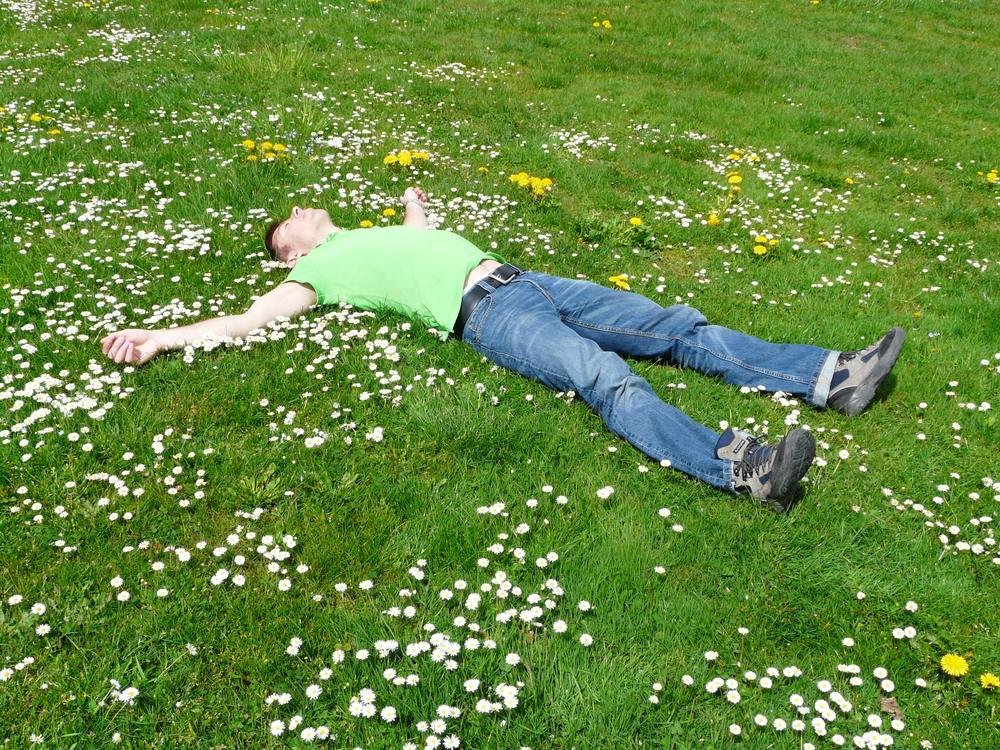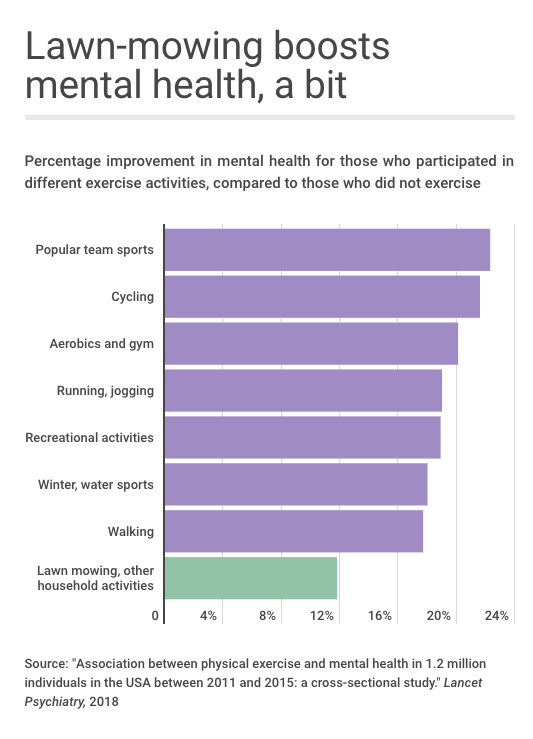
Mowing the lawn and raking leaves improve your mental health, but only by a bit, according to a massive study published in the British medical journal The Lancet.
Lawn mowing, raking and other common household chores increase mental health by about 12 percent, according to the study titled “Association Between Physical Exercise and Mental Health in 1.2 million Individuals in the USA Between 2011 and 2015: a Cross-Sectional Study.”
But for big leaps in mental health, the study suggests, stash the lawn mower and use your weekends on team sports — activities such as baseball, basketball, volleyball and badminton beat lawn mowing hands down, boosting people’s mental health about twice as much in shedding the blues.
“It’s clear that exercise has a number of health benefits and it’s pretty clear exercise has benefits for mental health,” one of the study’s co-authors, Dr. Adam Chekroud of Yale University’s Department of Psychiatry, told Lancet editor Niall Boyce.
How the study was done
The study was a massive one, incorporating self-reported data of 1.2 million Americans. The raw data came from a trio of surveys conducted in 2011, 2013 and 2015. The surveys were conducted by the U.S. Centers for Disease Control, and included questions about both mental health and exercise.
People were asked if they had ever been diagnosed for depression, and whether they had been depressed, stressed out or had emotional problems in the past 30 days.
They were also asked whether they exercised, what they did and how often.
What the researchers from Yale and Oxford universities did for their study was both complicated and simple — complicated due to the massive amount of data, but simple in concept: They compared the mental health of those who exercise against those who don’t.
Mental health, exercise linked
They found a large correspondence between good mental health and exercise.
“The results were pretty interesting,” Chekroud said. “The most heartwarming result was even walking was associated with a reduction in mental health burden.”
The mental health boost was not evenly distributed. People were asked to describe their exercise, and they named 75 different activities, which the researchers consolidated into groups.
At the top tier were popular sports, mostly team activities, but also including two-person sports such as tennis and handball. The popular sports participants saw their mental health boosted by 22.3 percent. Cycling was a close second, at 21.6 percent.
The bottom tier was the household activities category, which included lawn mowing, raking, gardening, carpentry, painting, child care, snow blowing vacuuming and dusting. It boosted mental health 11.8 percent.
More exercise does not mean better mental health
Among the study’s other findings:
- It’s not true that the more exercise you get, the more mentally healthy you become. The best mental health outcome went to those who exercised three to five times a week for 45 minutes.
- The benefits of exercise amount to 1.5 days fewer per month suffering from poor mental health.
Lawn mowing was already known to increase physical health. A study by Harvard University Medical School looked at the number of calories burned in common activities, including lawn mowing.
A 155-pound person pushing a motorless reel mower burns 223 calories an hour. That’s slightly more than an hour of disco dancing (205 calories), slightly less than race walking (242).
Now we can add mental health to lawn mowing’s benefits.
